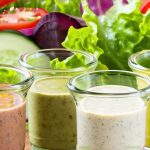Avocados have surged in popularity over the last decade, becoming a staple in many diets due to their creamy texture, rich flavor, and purported health benefits. From toast topping to guacamole’s star ingredient, this fruit (yes, botanically an avocado is a single-seeded berry!) has earned its place as a nutritional powerhouse. However, alongside all the praise, there’s a growing number of individuals who experience digestive discomfort after consuming avocados – bloating, gas, stomach cramps, even diarrhea. This isn’t necessarily indicative of an allergy or intolerance; rather it often stems from specific characteristics within the avocado itself and how our bodies process them. Understanding why avocados can be difficult to digest is key to enjoying this delicious fruit without unwanted side effects.
The issue isn’t that avocados are inherently “bad” for digestion, but rather their unique composition presents challenges for some digestive systems. The high fat content, the presence of certain carbohydrates like polyols, and even the fiber contribute to potential issues. It’s crucial to remember that everyone’s gut microbiome is different; what one person digests easily another might struggle with. This article will explore the reasons behind avocado-related digestive difficulties, offering insights into how you can potentially mitigate them and continue enjoying this nutritional fruit. We’ll delve into the specific components causing problems, examine individual sensitivities, and discuss strategies for improving digestion.
The Role of Fat Content & Digestive Processes
Avocados are remarkably rich in fats – primarily monounsaturated fatty acids which are generally considered healthy. In fact, a medium-sized avocado can contain up to 30 grams of fat! While these fats are beneficial and essential for our bodies, they also demand more effort from the digestive system than carbohydrates or proteins. Digestion of fat begins in the small intestine, requiring bile produced by the liver and enzymes released by the pancreas to break down the fat molecules into smaller components that can be absorbed. – This process is significantly slower compared to digesting carbs or protein. – For individuals with compromised gallbladder function or pancreatic insufficiency, this slowing down can lead to undigested fat reaching the large intestine, resulting in gas, bloating, and diarrhea.
The sheer quantity of fat in an avocado portion also plays a role. Our bodies are accustomed to digesting smaller amounts of fat alongside other food components. A larger bolus of mostly-fat, like consuming half an avocado on its own, can overwhelm the digestive system’s capacity at that moment. Furthermore, if you’re already sensitive to fatty foods or have underlying conditions like Irritable Bowel Syndrome (IBS), even moderate amounts of avocado fat can trigger symptoms. It’s important to note that ‘fat malabsorption’ isn’t always a clinical diagnosis; it can simply mean your digestive system is struggling with the volume and type of fat presented, especially when consumed in isolation.
Finally, combining avocados with other foods that aid digestion – like lean protein or fiber-rich vegetables – can significantly improve tolerance. This provides a more balanced meal for the digestive system to process effectively, reducing the strain on bile production and enzymatic activity. Consider pairing avocado with eggs, salad, or whole-grain toast instead of eating it in isolation.
Fiber & Polyols: Carbohydrate Complexity
Beyond fat, avocados also contain a substantial amount of fiber – both soluble and insoluble. Fiber is undeniably good for gut health, promoting regularity and feeding beneficial bacteria. However, excessive fiber intake, particularly if your body isn’t accustomed to it, can lead to gas and bloating as the microbiome works hard to break it down. The large intestine ferments undigested fiber, producing gases as a byproduct of this process. – This is perfectly normal, but uncomfortable for some. – Individuals with sensitivities or pre-existing digestive conditions may experience more pronounced effects from avocado’s fiber content.
A less commonly discussed component contributing to avocado digestion issues are polyols, also known as sugar alcohols. Avocados contain sorbitol and mannitol, two types of polyols naturally occurring in many fruits and vegetables. Polyols are poorly absorbed by the small intestine, meaning they travel largely undigested to the large intestine where bacteria ferment them – again producing gas and causing bloating. – Some people lack the enzyme needed to properly digest these compounds, leading to increased sensitivity. The amount of polyols isn’t huge in an avocado compared to other fruits like peaches or plums, but it can contribute to overall digestive discomfort when combined with the high fat content and fiber.
The combination of all three carbohydrate factors – fiber and polyols – creates a complex load for the digestive system. This makes avocados potentially problematic for individuals prone to bloating or IBS symptoms. Why saying no to plans can also help reduce stress and improve digestion.
Strategies for Improving Avocado Digestion
If you experience discomfort after eating avocado, don’t necessarily eliminate it from your diet entirely. There are several strategies you can try to improve your tolerance:
- Portion Control: Start with very small portions – perhaps a quarter or even an eighth of an avocado – and gradually increase the amount if tolerated. This allows your digestive system to adjust slowly. Avoid consuming large quantities in one sitting, especially on an empty stomach.
- Food Pairing: As mentioned earlier, combine avocados with other foods that aid digestion. Lean protein sources (like chicken or fish) stimulate bile production, while fiber-rich vegetables provide a balanced meal for the digestive system to process. Consider adding lemon juice or a pinch of black pepper – these can also support enzymatic activity and fat digestion.
- Ripeness Matters: Less ripe avocados are harder to digest than perfectly ripe ones. As an avocado ripens, its sugars become more accessible and easier for the body to break down. Choose avocados that yield gently to pressure but aren’t mushy or bruised. Best smoothies can also help improve digestion!
Understanding Individual Sensitivities & Gut Health
The digestive response to avocados is highly individual. What triggers discomfort in one person may not affect another. Pre-existing conditions, such as IBS, Crohn’s disease, or celiac disease, can significantly impact tolerance. – These conditions often involve altered gut permeability and microbiome imbalances, making individuals more sensitive to certain foods. Even without a diagnosed condition, variations in the gut microbiome play a significant role.
Furthermore, enzyme deficiencies can contribute to avocado-related issues. A lack of lipase (the enzyme that digests fat) or sucrase-isomaltase (needed for breaking down sugars including sorbitol) can lead to malabsorption and digestive symptoms. – These deficiencies aren’t always diagnosed; they might simply manifest as food sensitivities. Improving overall gut health through a balanced diet, probiotic supplementation (after consulting with a healthcare professional), and stress management can all help optimize digestion and potentially increase avocado tolerance. How to stimulate enzyme release could also be beneficial. A healthy gut microbiome is more resilient and capable of processing complex foods like avocados.
When to Seek Professional Advice
While digestive discomfort after eating avocados is often manageable with the strategies outlined above, it’s important to know when to seek professional advice. If your symptoms are severe, persistent, or accompanied by other concerning signs – such as significant weight loss, blood in stool, or chronic diarrhea – consult a doctor or registered dietitian. – These could indicate an underlying medical condition requiring further investigation.
It’s also advisable to rule out any food allergies before self-diagnosing intolerance. A true avocado allergy is relatively uncommon but can cause more serious symptoms like hives, swelling, and difficulty breathing. If you suspect a food allergy, get tested by an allergist. Finally, if you have a pre-existing digestive condition, discuss your concerns with your healthcare provider to develop a personalized dietary plan that addresses your specific needs and sensitivities. Why your child’s gut trouble may also be related! Don’t self-treat based on online information; professional guidance is always best when dealing with health issues. Food rotation methods can further help support digestive health.


















